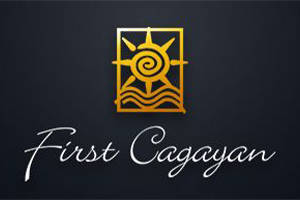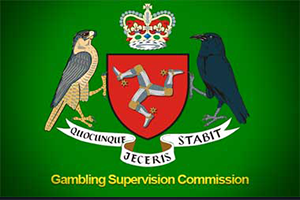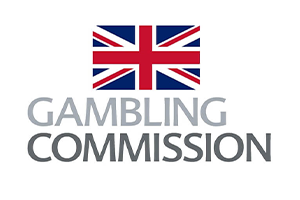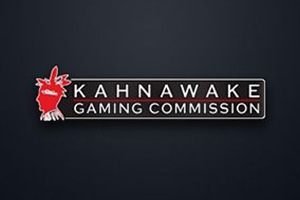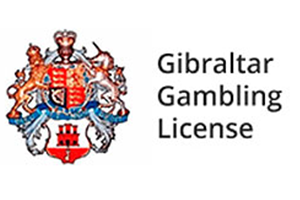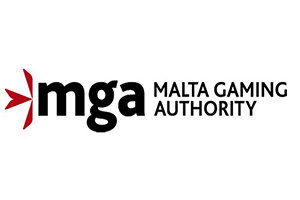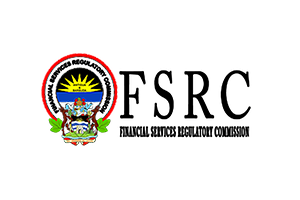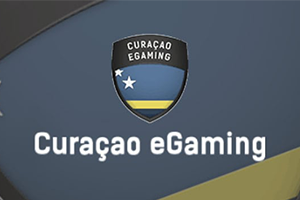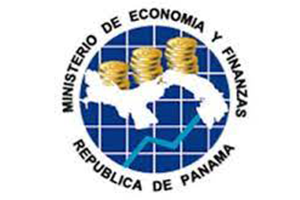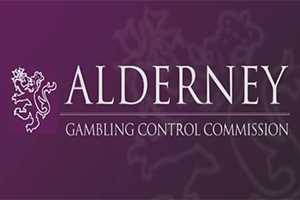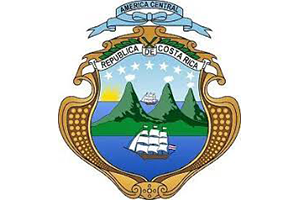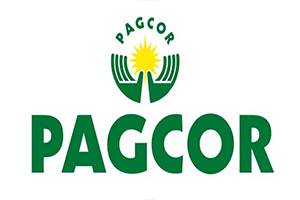On the homepage or at the bottom of most online gaming sites, you will see promotions such as "Our company is legally licensed" and "We have a xxx gaming license", but it is very difficult for the average player to tell whether these claims are true or not. What exactly is considered a legal betting site? Where can I find the so-called "gaming license"? What are the different levels of regulation?
This page was created exclusively by Gaming ScoutBetting Sites Qualification InquiryAs a guide, we have compiled a list of the more common online gaming licensing and regulatory bodies in the world, including the official units in the Philippines, the United Kingdom, Malta, Gibraltar, Canada and other regions, with links to the corresponding official websites, so as to make it easier for players to make their own inquiries. Through these channels, you can check whether a betting website is truly licensed, whether the license is valid, and whether the operating entity is consistent with the website's claims, so as to initially judge its degree of compliance and risk level.
A special note is needed:
Holding a license does not mean that there are no disputes at all, and licenses in less regulated areas may not be able to truly protect overseas players; on the contrary, platforms that do not have any licenses, or even pirate fake license logos, can basically be regarded as high-risk or black networks directly. The content of this page only provides general information and query portal, does not constitute a legal opinion or investment advice, all the results of the query still need to be combined with the laws and regulations of your region and their own risk tolerance ability to make a comprehensive judgment.
How can I use this page to conduct a legal betting site qualification search?
Step 1: Find the license information that the website claims to have.
Open the gaming site you want to check, scroll to the bottom of the page or to the "About Us" or "Terms and Conditions" section, and look for the license number, the name of the regulator (e.g. PAGCOR, MGA, UK Gambling Commission, etc.), and the registered name of the company. Websites that only say "legally licensed" without any license number or name of the regulator are inherently suspicious.
Step 2: Check the information on the official website of the corresponding regulator.
Among the various gaming licensees listed on this page, find the regulatory unit that matches the name of the license you see, and then click on the link to the corresponding official website to go to its "List of Licensed Operators," "Licensees," "License Holders," and other query pages to search for the company name or brand name claimed by the gaming site.
Step 3: Compare the company name, domain name and license type.
Some websites will carry the banner of a certain group license, but the actual operating entity, domain name and license registration information are not consistent. Please be careful when making inquiries:
- Whether the company name registered on the license is consistent with the statement at the bottom of the website;
- Whether the domain name registered for the license includes this URL you are visiting;
- Whether the type of license covers "Remote Gaming" "Online Gaming" "Remote Gaming" etc. and not just offline physical casinos or other operations.
Step 4: Combine the strength of regulation with player reputation.
Gaming regulators in different jurisdictions vary greatly in terms of vetting standards, ongoing regulation, and handling of player complaints. Even if the license is authentic, it offers limited protection in case of disputes if it comes from a jurisdiction with weaker regulation. Therefore, on the basis of confirming the authenticity of the license, you should also refer to the player reviews, payout reputation, risk control performance, and the tips on the Gaming Scout blacklist page before deciding whether to use the gaming site in the long term.
Philippines First Cagayan
First Cagayan
First Cagayan used to be the legal Philippine government authority over online gambling interactive games. However, in 2014, due to political instability, there were constant rumors about the rights of First Cagayan and the legality of the online gambling license. in December 2016, more than 1,300 employees in the Clark Resort, which is protected by the agency, were arrested by the police for operating illegal online gambling (for not taking a PAGCOR gambling license). This happened and online gambling companies formerly registered with Cagayan have been trying to find ways to obtain a gambling license from PAGCOR (another Philippine agency that issues gambling licenses).
Website. http://www.firstcagayan.com/
UK Isle of Man (Isle of Man) Gambling Supervisory Commission
Isle of Man Gambling Supervision Commission (IOM)
The Isle of Man is an island in the sea between England and Ireland and is a British Crown Dependency. Gaming sites from all over the world can apply to it for the relevant license as long as they meet the vetting criteria. Its license is difficult to apply for and is well supervised, and users can complain to the agency if they find that a gaming site has acted improperly.
Website. http://www.gov.im/categories/business-and-industries/gambling-and-e-gaming/licence-holders/
UK Government Gambling Commission
Gambling, Commission
(High application difficulty))
Any company holding a license issued by the UK Government Gambling Commission is required to comply with the conditions of application for the license and to implement the regulations. In order to ensure that these conditions are properly implemented and complied with, the UK and European regulators conduct regular inspections in this regard. At the same time, details of all transactions are recorded and monitored in real time by the relevant authorities.
Website. http://www.gamblingcommission.gov.uk
Kahnawake Gaming Commission of Canada
Kahnawake Gaming Commission
Its offices are located in the Mohawk Aboriginal region of Canada and are scattered in their approach and ineffective in overseeing the operations of the registered gaming companies.
Gibraltar Gaming Commission
Gibraltar Gaming Commission
(High application difficulty)
Of all the jurisdictions in the world, Gibraltar has the most stringent regulatory standards imposed by its government. Most of the gaming operators operating under Gibraltar's control are among the world's most reputable online gaming companies with a focus on poker rooms and sports betting.
Horse Other Online Gaming Committee
The Malta Remote Gaming Council
(High application difficulty)
Compared to the low level of service provided by other online gaming licensing authorities around the world, Malta offers a higher quality of service as well as strict regulation for registered bookmakers. However, what is said here is only for betting companies operating in their home country.
Website. http://www.mga.org.mt/gaming-sectors/remote-gaming/
Antigua Offshore Gaming Bureau
the Antigua Directorate of Offshore Gambling
It used to be a place where many gaming companies applied for registration, and due to poor management, many have gone elsewhere to apply for licenses. Its official website also often fails to open.
Curaçao Internet Gaming Commission
Curacao Internet Gaming Association
Anyone can buy a gaming license from them. There is no oversight of the licensed company.
Website. http://www.curacao-egaming.com
Panama Gaming Commission
Panama Gaming Commission
The Panamanian authorities are required to regulate all gaming games to ensure that they meet the required standards, this is only for gaming games operating in the country, as for online gaming registered in the country but operating in a foreign country, they are weak in regulation.
Website. http://www.mef.gob.pa/es/servicios/Paginas/Registrodeproveedores.aspx
British Alderney Gaming Control Board
Alderney Gambling Control Commission
Established in May 2000, the Commission is an independent, non-political body that regulates matters relating to the electronic gaming industry on behalf of Alderney. The Commission ensures that the manner in which it regulates and supervises the industry is in accordance with the highest international standards.
Website. http://www.gamblingcontrol.org/licensees/egambling-licensees/
Costa Rica Online Gaming
Costa Rica Online Gambling
Costa Rica is one of the major registries for online gambling. However, the country does not actually issue any online gambling licenses, and all online gambling operations only receive a "data processing" license from San Jose City Hall.
(Their publicly available website is as follows, but there is no search page for online gaming company registration information)
Website. http://www.meic.go.cr
Philippine Government Gaming Commission
Philippine Amusement and Gaming Corporation
PAGCOR, also known as the Philippine Amusement and Gaming Corporation (PAGCOR), was the only legal Internet gambling license issuer in the Philippines, replacing Cagayan, and issued a total of 35 Internet gambling licenses, with 10 additional branches under the 35 gambling licenses. The politically volatile Philippine government soon after stopped the agency from accepting internet gambling licenses, as well as issuing and other rights, and the previously issued licenses were to be recalled.
Website. http://www.pagcor.ph/regulatory/offshore-gaming.php
Asia Pacific Entertainment Gaming Agency
Asian Prestige Entertainment Coorperation
In 2016, APECO replaced the Philippine Amusement and Gaming Corporation (PAGCOR) as the sole legal online gaming licensee in the Philippines. Approved by the Philippine Senate, Legislature and Judiciary, the APECO-issued online gaming license is based on Act 10083 of the Constitution of the Republic of the Philippines, which allows foreign investors to operate and legally operate online gaming in the Philippines, but the first condition is that they cannot target the local Philippine market!
Website. http://www.apeco.com.ph
Common Pitfalls and Misconceptions When Searching for a Gaming License
1) Just look at the LOGO without checking the official list
Many high-risk betting sites will have LOGO icons of various regulatory bodies at the bottom of the page, but they don't always actually hold a license. The most common mistake is to only look at the icon and not check the official list. The right thing to do is to click on the link to the official website of the regulator provided on this page and search for the company name in the list of licensed operators published by them.
2) Confusing company license with cooperative license and white label license
Some websites are not directly licensed themselves, but operate under the license of another company or platform (the so-called "white label" model). This type of model is permitted in some regulatory jurisdictions, but the boundaries of responsibility are complex. In the event of a dispute, who is responsible and whether the regulator will accept the complaint need to be analyzed on a case-by-case basis, so the risk is usually higher than that of a "directly licensed" website.
3) Ignoring the scope of application of the license and regional restrictions
Some licenses only allow licensed companies to provide services in specific countries or regions, or explicitly prohibit opening accounts to players in certain regions. Some sites are licensed, but if your region is on the banned list, the regulator may not be able to help you in the event of a dispute.
4) Excessive fetishization of licenses and neglect of actual word-of-mouth and risk-control performance
While a real license is important, it doesn't mean that this betting site will always be free of problems in terms of payout speed, enforcement of campaign terms and conditions, and wind control audits. In the long run, real player reviews, complaint records and blacklist information are equally critical. It is recommended that after confirming the license, you combine it with the blacklist page and complaint box feedback from Gaming Scout to make a comprehensive risk assessment.
Legal Gaming Site Qualification Check FAQ
Question 1: As long as there is a license, is it an absolutely safe betting site?
It's not.
Holding a legal gaming license indicates that the site has passed basic audits in a jurisdiction and is subject to a certain level of regulation, but it does not mean that disputes will never arise. Limited strength of licenses, limited regulatory resources, and varying processing efficiencies all affect the ultimate protection. A license can only serve as a starting point for assessing the risk of a gaming site, not an end point.
Question 2: Is a website with no license information found anywhere necessarily a dark web?
Can't generalize, but the risks are extremely high.
If a website claims to be "legally licensed" but cannot find any license number, name of regulator or corresponding company information, it is highly likely to be operating without a license or even a fake license. For this kind of platform, it is recommended to regard it as a high-risk website and try to avoid depositing any funds, not to mention recharging large amounts.
Question 3: Can I rest assured when I see logos of PAGCOR, MGA, UKGC, etc. at the bottom of the website?
You can't judge by the logo alone.
The correct approach is to go to the official website of the corresponding regulatory body and check the licensed list with the company name or brand name to confirm that the website is indeed on the list and pay attention to the type of license, scope of application and validity period. If the logo icon does not match the actual search result, it can basically be concluded that there is a suspicion of exaggeration or forgery.
Question 4: I'm already experiencing withdrawal problems with a site, can I take my license information and file a complaint?
In some heavily regulated areas (e.g. UK, Malta, Gibraltar, etc.), players can submit a complaint to the regulator or a third party mediator based on the license information, but there is no guarantee of whether it will be accepted or not, or how quickly it will be dealt with and the outcome. You can also submit details via the Gaming Scout's "Complaint Box" at the same time to let more players know how the site is actually performing. Please note that these channels do not ensure that losses will be recovered, they are just one more way to record and reflect the problem.
